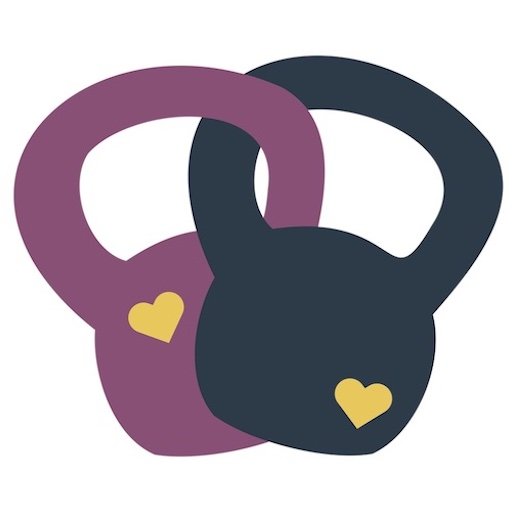How a HAES approach can help you make peace with food
By Sarah Petty
“Sure, the idea of not dieting sounds good, but what the heck am I supposed to eat besides ice cream?”
This was said to me recently by a potential client, as we discussed the possibility of working together. We both laughed, because it sounds silly to say it out loud! And yet, this core belief that comes from many years of food restriction or dieting for “health” reasons is so common:
Any pursuit of eating for wellbeing must be inherently restrictive.
This is what happens when the entire cultural consensus of “health” boils down to body shrinkage.
If we define “health” as “thin,” it inevitably leads to us ceasing to take care of ourselves when we reach a lower weight.
Can we still be healthy if we gain that weight back?
What if we engage in healthy behaviors that do not lead to weight loss?
What about if we have a chronic illness, such as an autoimmune condition or PCOS? No amount of weight loss will cure these things.
These questions and more show the flaws in the culturally accepted paradigm.
Enter Health At Every Size® (HAES).
This approach can help you get healthier when the medical community has written you off as “noncompliant” or “untreatable.” It physically improves your health when you treat yourself with compassion and search for ways to make meaningful improvements in your routine.
Health At Every Size is often misrepresented as an advocacy platform that states you can be healthy at any size. Let’s lay that to rest - HAES doesn’t mean all bodies can be healthy, regardless of size/weight. It means that, regardless of size, you can engage in behaviors that improve your health and quality of life. HAES shines a light on the harm that comes from pathologizing weight, and speaks out against weight stigma and medical negligence often experienced by folks in fat bodies, which directly influences their wellbeing and longevity.
Seems a little obvious, right?
And yet, there are many health care providers, services, and locations that withhold accessibility and respect to people in all bodies:
Medical offices often don’t provide adequate seating, and disrespect patients by preaching about weight loss when their visit is intended to resolve ear infection or IBS. Chronic illnesses are often missed, or misdiagnosed, because providers aren’t trained to thoroughly assess fat bodies. Medical negligence and mistreatment causes folks to avoid regular check-ups, which means diseases aren’t caught as early and risks of illness/death increase.
Fitness professionals tailor workouts to people who are already in conventionally acceptable bodies or at an intermediate fitness level, making everyone else feel out of place or downright excluded. Shaming clients into working harder at the expense of their wellbeing is common enough that many of my clients have had to take a break from exercise due to a trauma response to anything fitness-related.
Nutrition coaches and dietitians (typically young, naturally thin, and white) often use their own bodies to showcase a very privileged version of “healthy eating,” offering the false promise of your dream body if you can just pay enough money. They are ignorant of or hide the fact that health looks different for every body, and so does eating well.
HAES is written off by many of these professionals as “touchy-feely,” “bad healthcare,” or “delusional.”
I assure you, it is not. If you’re still on the fence, please take a moment to consider your bias, and examine the actual research and educational materials created by researchers (rather than opinion articles, YouTube videos, or Joe Rogan podcasts). It’s ok to be unsure AND offer yourself the benefits of this approach. I’ll continue to unpack bite-sized pieces here for you.
Let’s get to the main point - how does this approach help you with food neutrality?
The HAES approach to food helps you decide what, when, and how to eat and move so you can live your life without food taking up so much space in your brain.
When your focus shifts from “what should/shouldn’t I eat?” to “how can food nourish me today?” - big things start to change.
You start noticing your body cues - hunger and fullness, energy and fatigue, mood changes, etc., and you start to honor them.
You begin to notice your motivations behind food decisions, until it becomes second nature to choose foods that are aligned with how you want to feel.
You begin to realize that eating chips and ice cream isn’t as stressful as it used to be, and you can thoroughly enjoy them without guilt.
You being to realize that your food choices do not reflect your moral status.
You begin to take more time to appreciate the food you have access to, and spend less time trying to plan the perfect week.
You begin to appreciate your body for all the ways it communicates with you.
You begin to be at peace with food.
I’ve seen it happen time and time again, and I want this to happen for you, too!
Here are some ways you can start to make that shift:
1) Read Body Respect by Lindo Bacon and Lucy Aphramore
2) Make a list of all the ways your body has suffered from deprivation, and how it will benefit from unconditional nourishment.
3) Join my email list for weekly tidbits to support your journey.
4) Find a HAES-aligned therapist, nutritionist, or coach to help you with the nitty-gritty. If you resonate with my work, I’m launching a HAES-aligned small group nutrition coaching program in October. You can apply here and be considered to join us!
If you find this information helpful, I’d be honored if you shared it with a friend.
The HAES approach can help people from all walks of life find peace with food.





